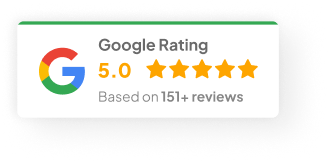31 Jan 25
Why Is It Useful to Learn HTML?
Look, you’ve probably heard about HTML a hundred times already. But here’s the thing: even in 2025, it’s still one of the most useful skills you can pick up—whether you’re a designer, marketer, small business owner, or just someone who wants a bit more control online.
Let me break it down the way I’d explain it to a client over coffee. No fluff. Just real talk.
1) HTML Is Literally What Holds the Web Together
Every single webpage you visit—whether it’s Amazon, your local cafe’s menu, or some random blog about 1980s sneakers—is built on HTML.
Without it? There’s no structure.
-
HTML’s the bones underneath every website.
-
Everything else (like CSS and JavaScript) just dresses it up and makes it move.
-
If you want to really get how websites work, this is where you start.
When I first started building sites back in 2004, all we had was basic HTML and a bit of CSS. Things have gotten flashier since then, but at the core—it’s still the same foundation.
2) You Can Make Small Changes Without Bugging a Developer
Here’s where knowing a little bit of HTML saves you time (and probably some money).
-
Adding a new product to your online shop? Easy.
-
Swapping out a photo that’s outdated? Done.
-
Fixing a weird text alignment issue? You can handle it.
I’ve had clients who call me in a panic because an image won’t centre properly. Honestly, most times it’s just one tiny <div> tag or an extra closing </p> causing the headache. If you know how to spot it, you can fix it yourself.
3) Marketers Who Know HTML Have a Serious Edge
If you’re in digital marketing, you need HTML. Full stop.
-
SEO loves clean HTML. Search engines read your code to rank your site.
-
Proper headings (
H1,H2, etc.) help Google understand your content. -
Image tags with
alttext? That’s SEO gold. -
Even email campaigns rely on well-structured HTML.
I had a client last year who boosted their organic traffic 30% just by cleaning up sloppy heading tags on their blog posts. No new content. Just better structure. That’s the kind of leverage HTML gives you.
4) Developers Will Actually Enjoy Working With You
You don’t need to be a coding wizard. But when you know the lingo, devs appreciate it.
-
Instead of “Can you make the font bigger?”, you’ll say, “Can we bump up the H2 size?”
-
Instead of “Something looks weird”, you’ll say, “Looks like the padding on this div’s a bit tight.”
Trust me—developers love when clients speak their language. Projects move faster. Less back-and-forth. Fewer misunderstandings.
5) Opens More Career Doors (Even If You’re Not Technical)
Employers love people who get how websites tick. It shows you’re proactive, not afraid of tech, and can problem-solve.
-
Want to stand out in digital marketing? Know some HTML.
-
Applying for a content role? You’ll handle CMS platforms like a pro.
-
Running your own business? You won’t feel lost every time you touch your website.
I’ve interviewed dozens of candidates over the years. The ones who casually say, “Yeah, I can tweak a bit of HTML if needed” always score points.
6) Side Projects? No Problem.
Dream of starting your own blog? Personal portfolio? Side hustle?
HTML gives you just enough power to build:
-
A simple but clean personal website
-
Custom landing pages for lead gen
-
Your first online store
-
A blog that doesn’t rely 100% on drag-and-drop editors
One of my mates built a full wedding photography site for his wife using basic HTML, CSS, and a $9/month hosting plan. Zero dev costs. That’s the kind of freedom you want.
7) Freelancers: You Need This In Your Toolkit
Freelancers wear a lot of hats. Knowing HTML means:
-
You can handle client website tweaks fast.
-
Build better-looking email templates.
-
Save on outsourcing minor fixes.
-
Offer more services = charge higher rates.
Honestly, I’ve seen freelancers double their rates just because they could say: “Yeah, I can handle minor website edits too.”
Bottom line
HTML isn’t some ancient tech. It’s still a super practical skill. You don’t need to master it, but knowing your way around tags, headings, links, and images will pay off again and again. And honestly? It’s not that hard to learn. Spend a weekend on a tool like Codecademy or freeCodeCamp and you’ll surprise yourself.
Hey, curious—have you ever tried poking around your website’s source code?


